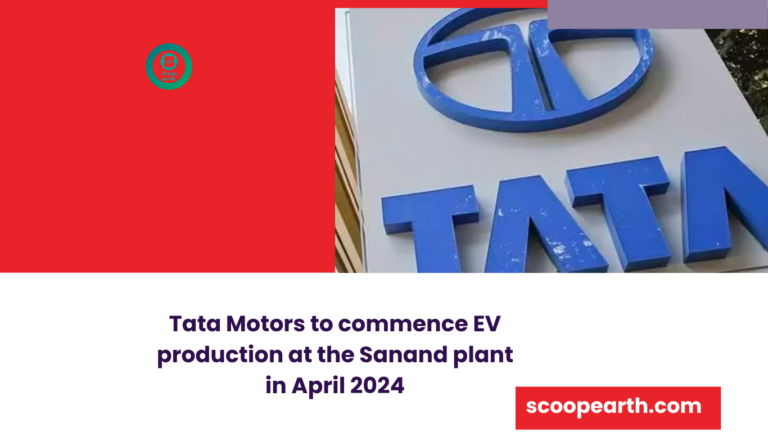From April this year, the Sanand plant was acquired from Ford India and will see vehicular production of electric vehicles under Tata Motors. In January 2018, Tata Passenger Electric Mobility Ltd bought the facility from Ford India for Rs.725.7 crore; it is a unit of automobile manufacturer Tata Motors.
We do plan to start electric vehicle production in Sanand with Nexon EV from April.” Tata Motors Passenger Vehicles MD Shailesh Chandra said as reported by PTI. An install capacity of 3 lakh units per annum has been fitted with the factory already beginning to manufacture internal-combustion engine variants of the Nexon.
It may also be increased to processing activity of 420,00 units per annum. Chandra said the facility would not only be rolled by-products from current vehicles but also models below production. Asked about the product pipeline of this firm, he said that the next Curvv EV would be launched in the second or third quarter of the current Calendar year.
We are hoping that by the twilight of this year, we should also roll out the Harrier EV and internal combustion engine (ICE) variant for Curvv as well. The growth on sales outlook for the next fiscal was recorded by him to be 5%. It is expected that in the case of passenger cars, the industry shall grow at such a rate.
Chandra says, “Since we don’t have many launches lined up this year, we plan to grow more than the industry rate.”
In his remarks on the Budget wishlist, he said that extending the FAME incentives to personal electric cars would expedite the electrification rate in India.
Chandra observed that sales of electric vehicles also increased significantly in Maharashtra and Gujarat when the government made incentives to buyers. He also added that there is the challenge of an inverted duty structure for EVs, which we have been demanding.
About talks on giving some concessions to a US-based EV major, Chandra said: “It is a simple position among us that we do not worry about specific competitors. Any player willing to enter the EV space with the upfront investment in localization or charging infra development is welcome.”
He further said: “We are not afraid of competition … we do well against the competition, all that would interest us is an even playing field.”
Ankit Kataria is an experienced content writer with over 2 years of expertise in crafting insightful articles on startups, trending topics, business, economy, and finance. With a keen eye for detail and a passion for delivering well-researched content, Ankit ensures that his articles are engaging, informative, and valuable to readers. His writing style blends analytical depth with clarity, making complex topics easily understandable for a broad audience.

